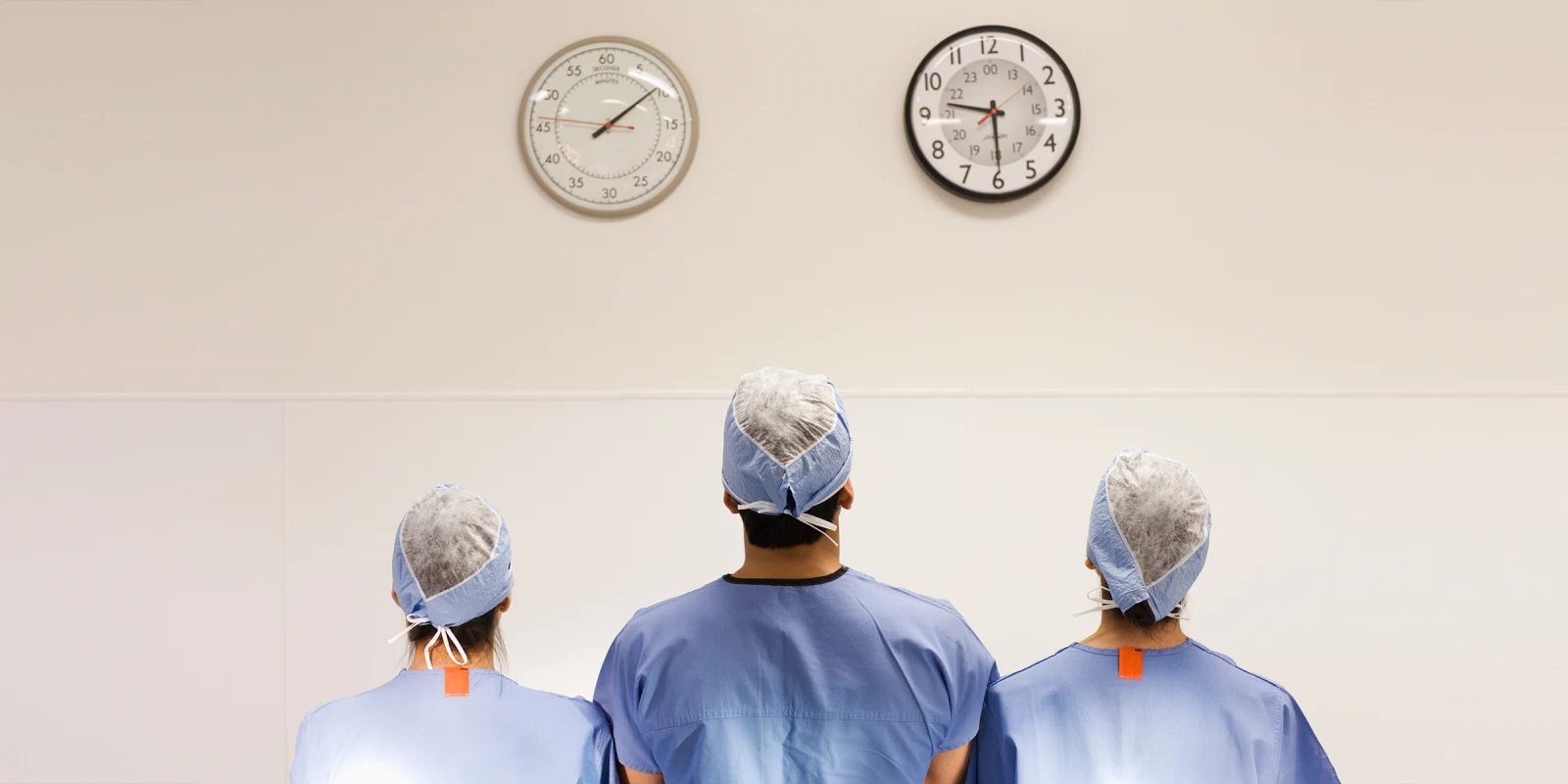During my residency in internal medicine, there was a shift where you cared for all the patients who were newly admitted from the ED to the inpatient medicine service. The shift took place from early to late evening, the rush hour time of a hospital, when outpatient doctor offices were closed and inpatient staffing availability was substantially reduced. I typed faster than I could think. I didn’t realize I skipped dinner and the cafeteria was now closed. I was surprised when I finally looked at the clock and realized the day was already over.
I only vaguely remember seeing a man with blood in his urine. I definitely don’t remember his name or age. He had had a biopsy of his kidney a few weeks prior and was now on his fourth hospitalization for ongoing bleeding from his kidney since the procedure. The plan was always the same: blood transfusions, Foley catheter placement, continuous irrigation of the bladder, and urology consult. He looked worn down, with more bruised than healthy skin over his arms. He was in excruciating pain, which I didn’t have time to properly acknowledge. The next admission page had already arrived.
A few months later, I was sitting with an infectious disease specialist in his spacious office filled with items from worldly travels. We were reviewing a consult for a patient with a history of multi-drug resistant infections. He had a high WBC count, which can be a sign of infection, and so was started on broad-spectrum antibiotics by the primary medical team. It was much to my surprise when the infectious disease doctor told me we should stop the antibiotics. “We haven’t actually found a localizing source of infection.” We explained this over and over again to the primary team. “But look, there is bacteria in his urine!” they responded. “It’s just colonization,” we answered. “How about just a short course of antibiotics just in case?” they refuted. But this infectious disease doctor remained firm. He explained to me how often these patients get C. diff, a bacteria often obtained after antibiotic use that can truly be life-threatening. “Or next time, when he actually does have an infection, it will be even harder to treat from more antibiotic resistance. It’s not worth the risk,” he said.
During medical school, I was taught that as doctors, one of our responsibilities is to weigh the benefits versus the harms of everything we do. But in clinical practice, I’ve seen how we value the benefits much more than the harms. In that office with that infectious disease specialist was one of the first times I started to feel truly overwhelmed by the reality that some medical interventions can — and do — cause great harm. My mind remembered the man with the blood in his urine and how I never thought for even one second about whether that kidney biopsy had been necessary in the first place. I didn’t even look at the results of it. I just knew I needed to treat what he had now. I was not angry toward that kidney biopsy. I had even ordered plenty of kidney biopsies since meeting him that one night, without thinking about all the bleeding he endured afterward. But then I thought about a woman I had also met on one of those evening shifts, who had arrived at the hospital in kidney failure. Her kidney function had slowly been worsening for some time. I was angry at those doctors. I felt they had failed her. I pored over her chart to identify where they had gone wrong and faulted the lack of an intervention for the cause of her symptoms.
In looking for guidance on how to more fairly value the benefits and harms of medical interventions, I stumbled upon The Choosing Wisely Campaign, an organization dedicated to providing the evidence for providers to recommend evidence-based interventions. Recommendations include not prescribing opioids for acute or chronic low back pain before a thorough evaluation (a risk: opiate dependence) and not obtaining daily labs on hospitalized patients with stable labs (a risk: hospital-acquired anemia). Looking at their recommendations versus the common practices in my hospital has helped me realize that we often do these tests and procedures because of prior common practice, and also because we like doing things. We know how to do them. They make us feel like we are doing everything; that we are not missing anything. This is our job — to provide and to heal. And changing that behavior, let alone any behavior, is hard.
So now, after a few years of clinical practice, this is what I tell my friends and family (if they so dare to listen to me): sometimes in medicine, it’s OK to wait —to defer an intervention —in order to collect more data, to wait for results, to see if things naturally improve or worsen. It’s OK to ask about the risks, and to really think about them. Some, like my husband, are grateful and in agreement with this type of advice (he is generally skeptical of everything). Either they have already been subject to the harms of an intervention, they are concerned about cost, or they are just generally distrustful of any form of health care. And then some, like many of the colleagues and patients I have interacted with, think it’s negligent and imprudent for patients to wait. I understand their concerns — that something will be missed or worsen — but what I ask is that we all, health care practitioners and patients alike, pay as much attention to the harms as to the benefits. I want us to treat doing something and not doing something with equal respect in shaping clinical experiences and outcomes.
Do you think medicine overtreats? Share your experiences in the comments below.
Charlotte Grinberg is an oncology hospitalist at Beth Israel Hospital in Boston, MA. She has a particular interest in palliative care and narrative writing. Her writing has appeared in JAMA, Health Affairs, and the Annals of Internal Medicine. She is a 2020–2021 Doximity Op-Med Fellow. She has no conflicts of interest to disclose.







